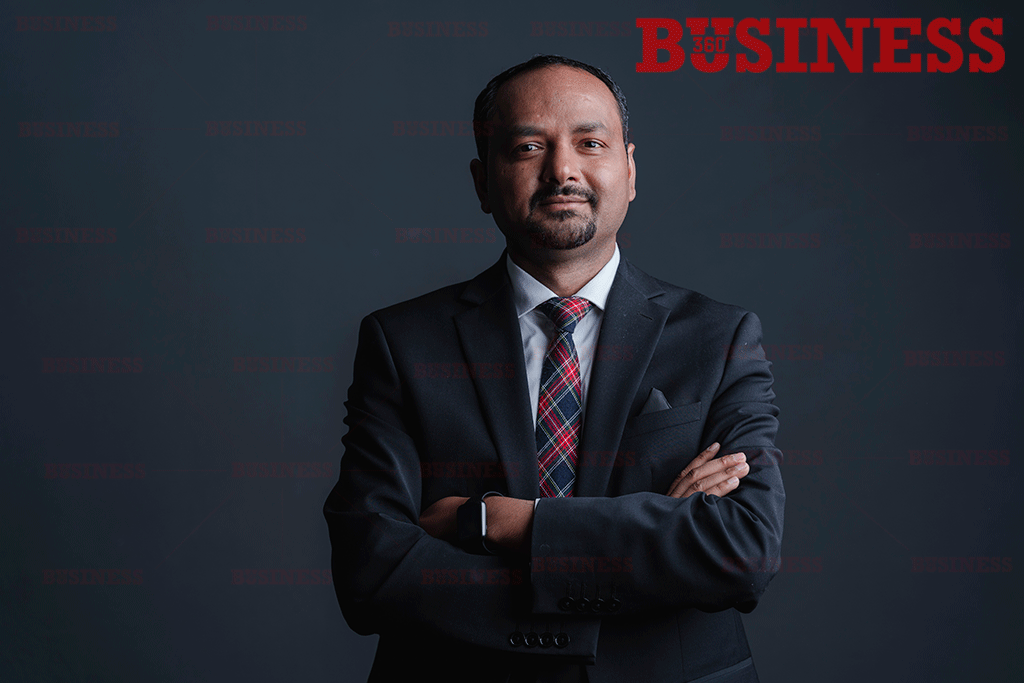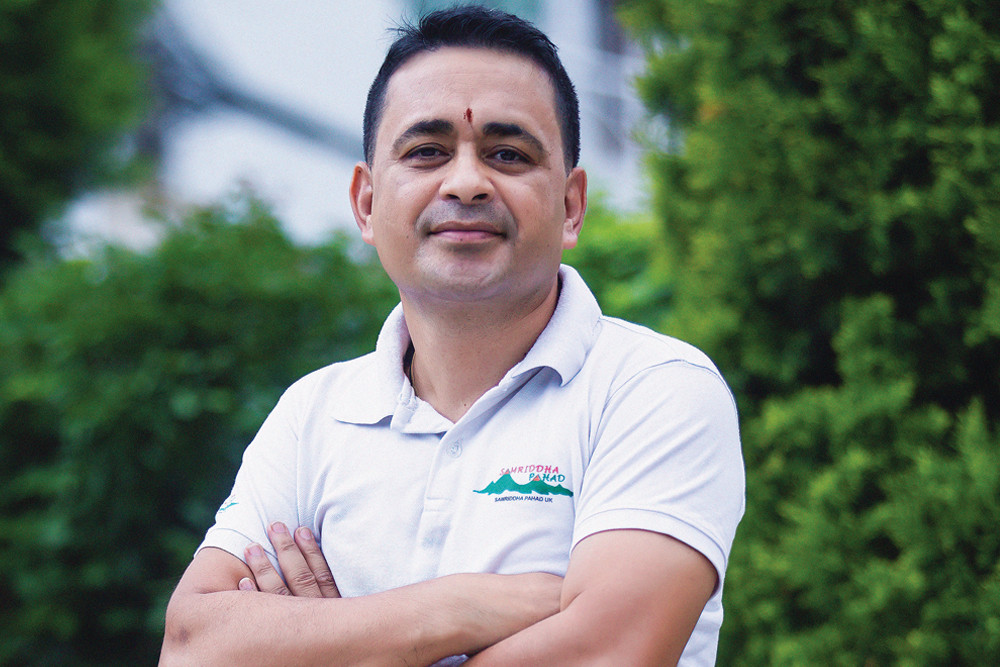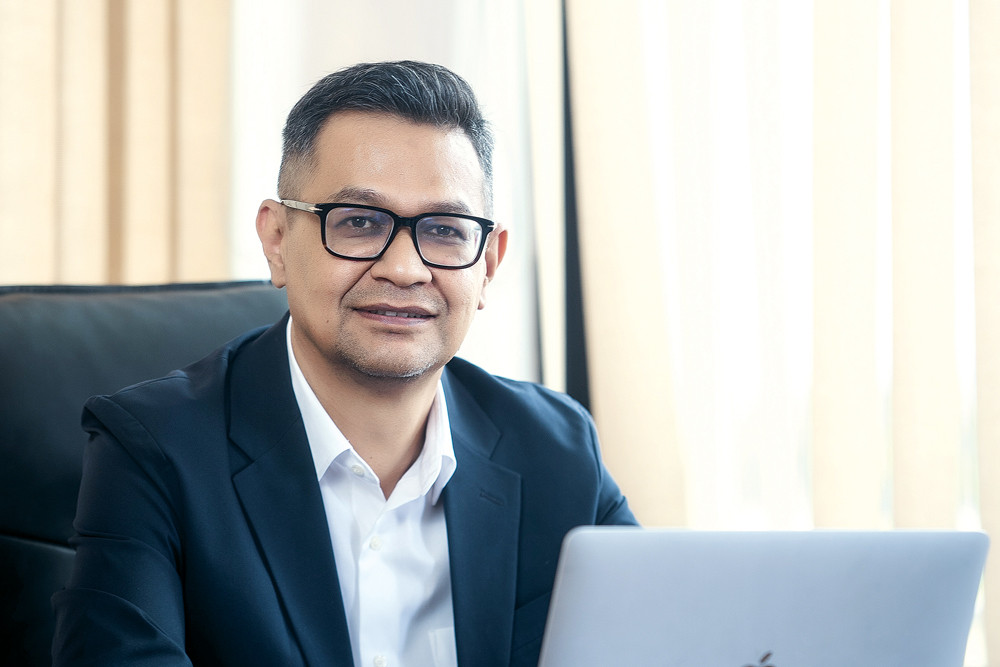
Pradip Pariyar is the Executive Chairperson of Samata Foundation and has two decades of expertise in formulating national and international policies for youth, peace and social justice. Samata Foundation is a leading independent think tank with specialisation in the area of caste-based discrimination and marginalisation issues. Since its establishment Samata Foundation is engaged in knowledge production to provide concrete and scientific information for evidence based informed policy advocacy, help formulate new policies and amend existing policy gaps concerning the welfare of Dalit and the most marginalised communities.
For his contribution and commitment towards empowering youth and promoting social justice, the World Economic Forum this year has recognised Pariyar in its 2020 class of Young Global Leaders. Previously, he has been the recipient of various awards and recognitions including the Asia 21 Young Leaders Award in 2018 from the New York-based Asia Society and the Youth Leadership Award in 2015 from the Ministry of Youth and Sports for his decade-long contribution to youth empowerment and leadership development. He was also Youth Fellow of the World Bank and the International Monetary Fund in 2011.
Pariyar is committed to creating next generation leaders and ensuring social justice in Nepal. He embarked on this path working on empowering the young Dalit women from Madhesh and fostering their leadership to establish democratic values and practices; an initiative he wants to extend throughout Nepal. He is proactively involved in internationalising the issues of the most marginalized communities of Nepal through various international forums. Excerpts of an interview with B360 on what leadership means to him:
What does leadership mean to you?
I believe leadership is about serving marginalised people around the world and to create a positive impact in their lives. Leadership creates opportunities for people to build their own leadership to enable change in society.
Leadership is to become an example, to speak the truth. It is about reflecting upon oneself and taking lead in the right direction. Leadership is power. Making right choices and informed decisions to utilise the power, and to know when to quit and make way for the new generation of leaders at the right time is also leadership. It is about giving more and taking less. It is about creating the next generation of leaders. Basically, it is to understand people, create hopes, enable them to dream, and the ability to lead.
Is leadership inbuilt or acquired?
I believe in leadership as a skill set that is acquired more than it is inbuilt. It is learning and implementing in practice. Some attributes are inbuilt too. People carry some qualities by birth but most part of it is acquired, learned. It is about learning, unlearning and relearning from your own experiences and through others as well. And in this way, it can be both.
People with inbuilt leadership are passionate and have zeal. They care about society and hold empathy towards it. As they start learning about leadership, they raise their voice against injustice and for equity and inclusion, representation and participation; now that is acquired. They inspire others to do the same. Either way, leadership is an important attribute.
Do you think leadership is reserved to an extent based on gender, caste, class, age and race?
In most part of the world, the election system determines leadership. It is of course the best democratic practice but it is increasingly more and more expensive. And those who can invest or afford the cost are the only ones who are elected as leaders; people with wealth and power. They have been exploiting the state power since ages, made policies, rules and regulations to their benefit and as they saw fit. The political system was developed likewise. Ultimately certain groups held the power and wealth. The resources never reached the people. Those in power always benefitted. They still continue to prevail.
Let me explain with an example. The successor of the King is trained and brought up to be a ruler, the future king. He is then enthroned. The marginalised community never has that opportunity. They are always placed at the bottom of the state to be ruled and not to become rulers. A major reason as to why they could not establish leadership roles. Leadership thus is exclusive to those with access to the state and power, one way or another.
Gradually the wall is being torn down. The marginalised community has to try harder and work more to bring it down. Those in leadership must understand that a country cannot move forward towards progress and development unless the country’s diversity is represented. Today’s leaders need to create an enabling environment to bring the marginalised community to the foreront of leadership.
Who do you admire as a leader?
Nelson Mandela is an excellent example. He brought people together and organised them to stand peacefully against discrimination based on the colour of skin. It required immense dedication, sacrifice and commitment. The change did not come easy. Even after the change, he gave space to the white people, it was equally important and not to be forgotten.
Had we wanted, he could have been President of South Africa for life. But he chose not to. He made way for new, young and future leaders. That is why he is considered a world leader.
A leader gives hope to people, and inspires them to achieve their dreams. A leader shows and makes the way to achieve larger goals. We can also learn from Rosa Parks, Gandhi, Ganesh Man Singh, Martin Luther King and Ambedkar. Leadership now has become self-centric. Everybody wants to be a leader by hook or crook.
What are we not getting right in choosing leaders?
In the context of Nepal, leadership has been limited to leading a movement. The historic movements of 2007, 2046, 2052, 2062/63, Madhes Andolan, and every other movement - leaders were born from these movements. Their only goal was to lead the movement and change the regime. This led to a gap in clear vision of a functional democracy, inclusion, meaningful representation and participation.
What do you see now: that leadership is not inclusive. Zero ownership of people. Youth are mere rooks in the game, manipulated in these andolans and forgotten.
Until and unless the country’s diversity is reflected in the state structure and discrimination is eliminated, real change will not happen. About six decades ago, a Dalit was chosen as the General Secretary of Nepali Congress. Now, a Dalit or any other leader from marginalised community needs reservation to get elected in its central committee. Why?
The founders of the Communist parties of Nepal were Aadibasi Janajati. The community needs reservation to be in its central committee. It is said that development and change come gradually. The time will definitely come and we should wait. But an Indian poet - Sarbeswor Dayal Saxena - once said, only death comes slowly and gradually. Does it imply that all of us, the persecuted, should wait for our death to arrive?
Any book on leadership you would wish to suggest …
I love listening to stories of everyday people, the common people. I love talking to them. It is enriching. I think the best way to learn is to talk to people and to listen.
However, I would recommend A Long Walk to Freedom. It is an exhilarating autobiography of an extraordinary leader, a true human - Nelson Mandela. This is an inspiring book.
What does representing a minority mean in this time and age? Minority group refers to a category of people who experience relative disadvantage as compared to the members of a dominant social group.
The presence of women and marginalised community in state structure or national leadership determines the standard of its prosperity and development. We live in the 21st century. Equity and inclusion is a valued standard established all over the world. Nobody should be left behind just because s/he belongs to a certain gender or marginalised community. When the state mechanism reflects its diversity, only then people’s ownership in the state is reflected. Their voice must be heard, they must be a part of all national decision-making processes. Without giving space to these unheard voices and untold stories, the narrative of an inclusive state is incomplete.
How can we imagine a prosperous and happy Nepal, when a large population still remains marginalised and excluded from the state leadership?
How must a leader act in testing times?
Today, the world is struggling with COVID 19 pandemic. It has become a threat to the human existence. A leader should find solutions rather than blame the difficult times. Crisis and problems give birth to opportunity and innovation. This is also testing times for the leadership.
There are news that countries with women leadership have done great in containing the pandemic spread. Countries like Germany, Iceland, Finland, Taiwan, Norway and New Zealand have particularly achieved success. There were times when women were never taken as leaders.
Here in Nepal, we failed to respond early. We did not understand the gravity of the pandemic. We started late. Borders were open. People were flying to and from China during the infection spread. We heard about the new Coronavirus in January but we started to respond in March. We could not work on time. Leaders should be able to foresee risks and benefits. The 2015 mega-earthquake was a major lesson for us, but we failed to learn from it. Early warning and preparedness never happened. The leadership was not farsighted.
Look at the top leaders of Nepal - everyone is 70 plus years of age. Apparently, they don’t have plans for retirement. More importantly, they do not seem to believe in young and aspiring leaders of today and tomorrow. This does not bode well for our future.



.jpg)


.jpg)